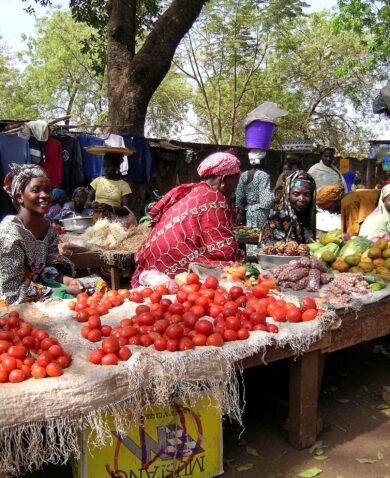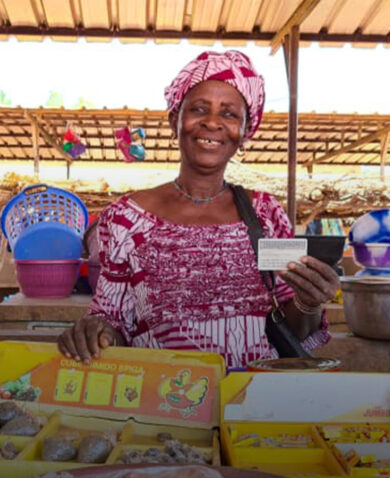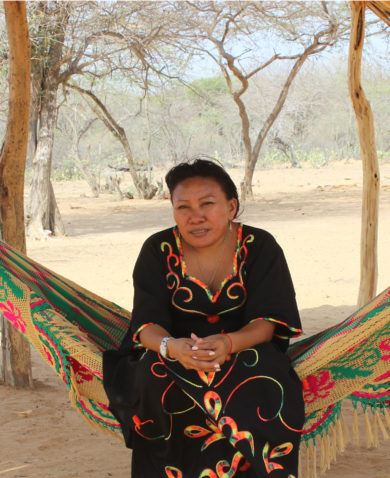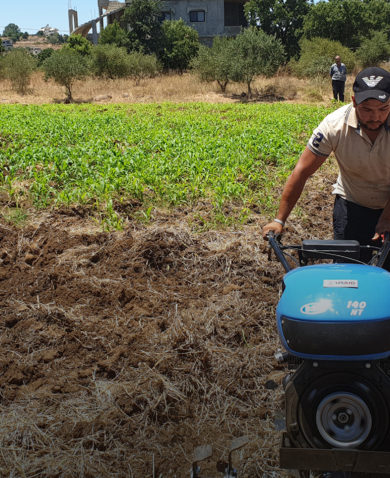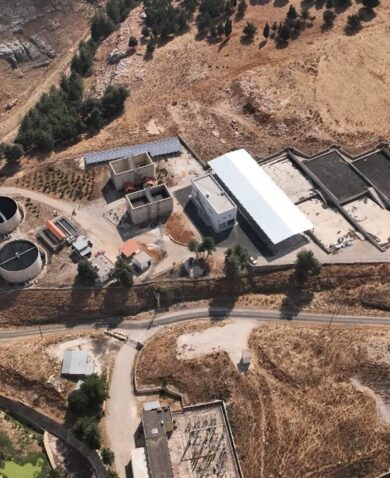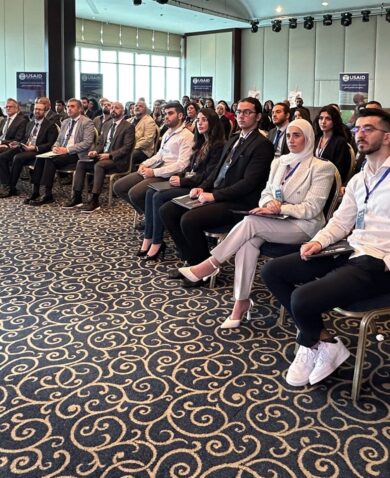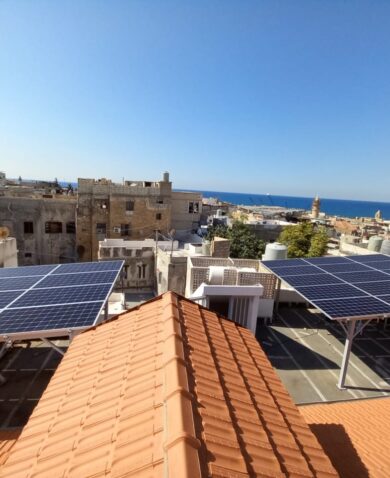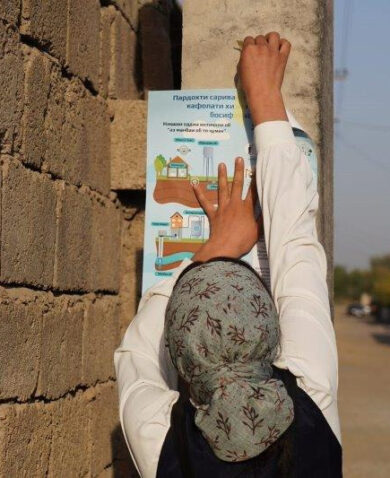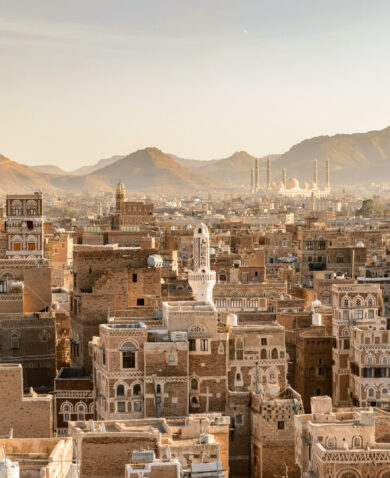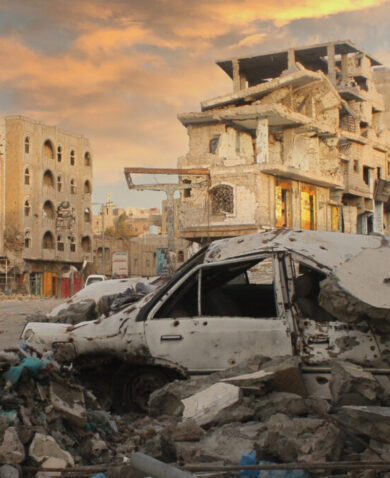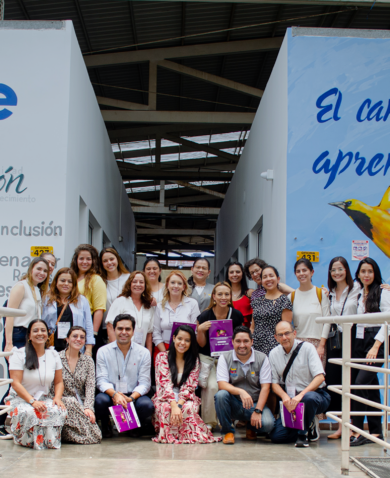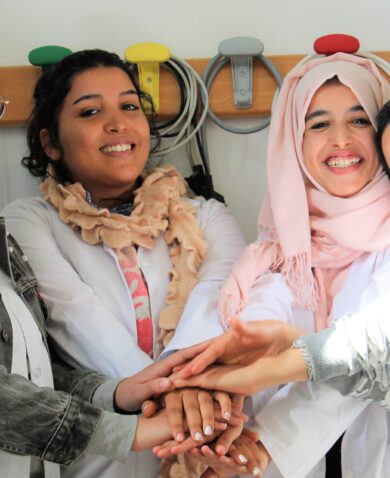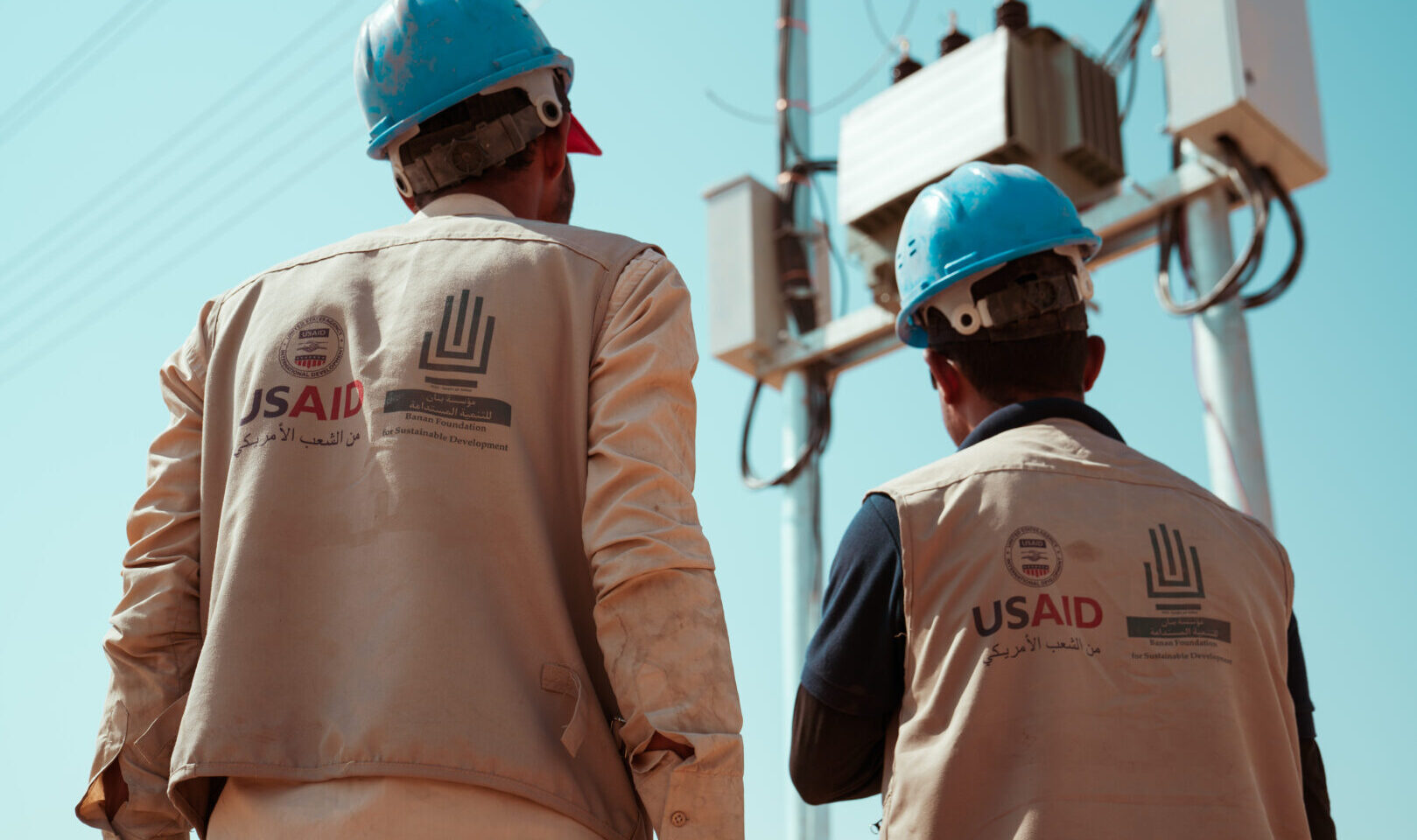
The Case for Continued Support to Sinjar: Ta’afi Lessons Learned and Strategic Opportunities
July 25, 2024 | 4 Minute ReadSinjar's strategic location and diverse community make it vital for regional stability. Continued international support is crucial to address infrastructure gaps, promote social reconciliation, and prevent further conflict.
Sinjar, a remote district in Northwest Iraq, has suffered from neglect and political isolation for decades. In 2014, ISIS’s occupation caused severe infrastructure damage, mass displacement, and the disappearance, enslavement, or murder of nearly 8,000 civilians. The Yezidi community suffered greatly. Many outside Iraq will recall dramatic news reports on U.S. food assistance airdrops to thousands of Yezidis stranded on Sinjar Mountain. The occupation also sparked tensions between the Yezidis and their Arab neighbors who were perceived as complicit in the genocide. Since 2018, the USAID/Office of Transition Initiatives-funded Ta’afi program has aided Sinjar’s recovery, supporting over 125 activities in partnership with local organizations.
August marks the tenth anniversary of the Yezidi genocide. While donors have made progress in supporting Sinjar’s recovery alongside the government and local organizations, significant gaps remain. Future challenges include infrastructure and home repair, equal access to water, electricity, and healthcare, and other basic services, recovery of agriculture and other livelihoods, social reconciliation, and political representation and empowerment for all Sinjaris. However, political disputes between the Kurdistan Regional Government and Iraq’s central government have left a power vacuum in Sinjar. Currently, Sinjar lacks a unified local administration, and the area is a theatre for proxy conflict among various foreign governments, militias, and political factions, each vying for control. For the coming decade, international actors must expand support to Sinjar to overcome these challenges.
Sinjar’s Strategic Importance
Due to its strategic location bordering three countries, Sinjar’s stability is intrinsically linked to the stability of Iraq and the region. Regional powers compete for influence and economic control in Sinjar, using it as an unregulated transit hub. The governance vacuum and high unemployment creates the space for these countries to support competing political and security actors on the ground. Sinjar’s diverse community of Yezidis, Sunni and Shi’a Arabs, and Kurds are exploited in this proxy conflict. The history of political and social conflict, including the recent ISIS occupation, fuels this dynamic. These twin challenges of porous borders and proxy conflict create an unstable situation in Sinjar that exacerbates broader hostilities across the Middle East. Restoring Sinjar’s local governance, economy, and peaceful coexistence is one of the keys to regional stability.
Additionally, while the return of internally displaced persons (IDPs) to Sinjar was initially slow, the government’s recent initiatives to close IDP camps is already exponentially increasing returns. Sinjar lacks the resources to accommodate this influx as basic services are strained, private homes remain in ruin, and job opportunities are limited. Further, both Arabs and Yezidis are returning, increasing the risk of social instability in an environment of scarce resources. Ta’afi staff in Sinjar are ramping up programs to prepare for this influx, but much more support is needed.
What Ta’afi Learned from Efforts in Sinjar
Since 2018, Ta’afi has developed a wealth of experience in Sinjar. We have partnered with local organizations to rehabilitate dozens of schools and community centers, 17 health facilities, hundreds of businesses and farms, and many other essential services. Additionally, we have advanced social reconciliation, civic activism, and women’s empowerment. So, as we call the international community to increase action in Sinjar, we offer the following reflections:
By partnering with Sinjari organizations, Ta’afi empowers the community to advocate, engage in civic action, and drive long-term recovery. For example, long-term partnerships with the Sinjar Women’s Forum and Warjin have increased women’s participation in media, decision-making, and community initiatives. To make these partnerships successful, Ta’afi provides a careful mix of in-kind support, cash grants, and technical assistance as local partners lead tangible projects to rehabilitate infrastructure or services. These emerging civil society organizations (CSOs) link citizens and their needs with government services, mobilizing diverse constituencies in a way that cuts across social divides. In a region that has long suffered from neglect and isolation, giving citizens and CSOs increased agency is one of the key pieces for Sinjar’s recovery.
Ta’afi restores essential government departments decimated by the ISIS conflict, crucial for IDP returns and long-term stability in Sinjar. Recognizing that continuity of essential services was key to achieving long-term stability, Ta’afi helped service providers “turn the lights back on” by providing equipment and supporting the rehabilitation of their offices. This allowed government agencies to continue with the valuable provision of civil defense, education, survivors affairs, compensation, informatics, and water maintenance. Citizens returning to Sinjar directly interface with these departments on multiple administrative and logistical needs to rebuild their homes and lives. Therefore, direct support to the departments is an important – but often overlooked – component of overall service delivery.
Ta’afi supports the Yezidi community’s quest for justice, recognition, and preservation of their identity, which is crucial for healing and reconciliation with neighbors. This includes practical support to survivors for government compensation, but also more symbolic efforts critical for healing and social reconciliation. For example, while the long-term exhumation process is ongoing, Ta’afi has partnered with Nadia’s Initiative to build fencing to ensure respect and protection for 15 mass graves. Ta’afi has supported youth groups to reinvigorate Yezidi culture through poetry, music, the arts, and historical preservation. Providing a sense of security for Yezidis and other marginalized minority groups is critical, as it then promotes the confidence to re-build peaceful coexistence with other groups in Sinjar.
Ta’afi’s success in Sinjar stems from a balanced approach supporting both Yezidi and Arab communities. This approach builds trust with all groups and mitigates tension over resources, allowing Ta’afi to be seen as fair and equitable in managing assistance. Further, it positions Ta’afi as a neutral and trusted actor in the community with the influence to nudge intercommunal cooperation, dialogue, and compromise. Key components of the approach include working through widely trusted local leaders and partners, investing heavily in community consultation, and robust communication about how and why assistance is distributed in certain ways. Most importantly, we have a consistent presence that allows for the slow process of building relationships and trust.
A Final Call to Action – Future Needs for Inclusive Recovery
Robust international support is more critical than ever as both Yezidis and Arabs return to Sinjar and proxy conflict in the area persists. Ad-hoc initiatives are insufficient. Donors must redouble efforts to resolve the political and security challenges in Sinjar and partner with the government and local organizations on sustained, multi-year recovery efforts. This includes rehabilitating services, homes, infrastructure, and key economic sectors like agriculture, while gradually advancing social reconciliation. Ta’afi’s experience demonstrates that progress requires close partnership with local organizations, government engagement, and nuanced program design and implementation approaches that consider the social and ethnic divides. Financing local solutions and investing in local staff and partners are indispensable, and this investment will mitigate the risk of future conflict in Iraq and beyond.
Banner Image Caption: Ta’afi staff work to implement community-based initiatives including the rehabilitation and furnishing of public facilities in collaboration with Yezidi civil society groups.
Posts on the blog represent the views of the authors and do not necessarily represent the views of Chemonics.





